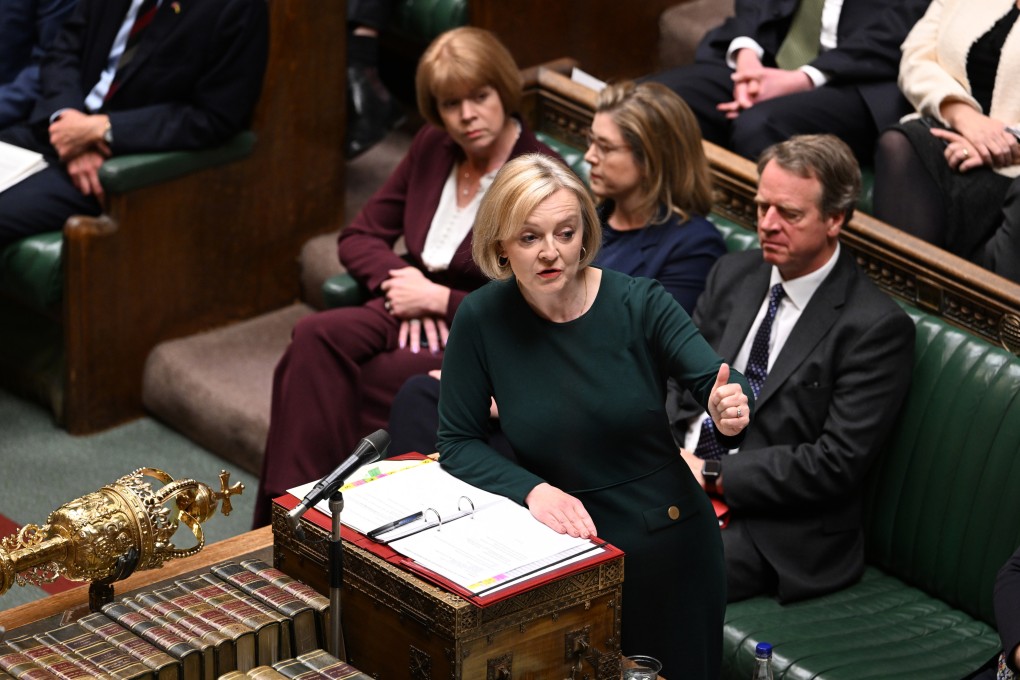My Take | With Truss and the Tories, Britain doesn’t need enemy China
- If the US is confronting Beijing from a self-declared ‘position of strength’, the UK is doing so from an unmistakable position of weakness

Prime Minister Liz Truss is about to label China a “threat” to Britain, according to news reports. The new designation is from the coming release of an official update on her predecessor Boris Johnson’s 2021 Integrated Review, which called China more moderately a “systemic competitor”.
The new hostile label is broadly in line with Truss’ previously declared view that China is “the most serious long-term threat to our values and way of life”. That may be so, or not. Rival nations tend to see the other side as the aggressor and their own actions as purely defensive. If country A sees country B as a threat, it will be the same the other way round. The mutual perception of threat will in the end spiral into a self-fulfilling prophecy.
Truss comes to power at a time of already exceptionally high inflation from inflated food and energy prices largely because of Western sanctions against Russia over the Ukraine invasion, and the breakdown of public health services due to the Covid-19 pandemic. She and her finance chief, Chancellor of the Exchequer Kwasi Kwarteng, have made things much worse in less than a month with their “tax cut-spend-and-borrow” budget by sending the British pound and the government bond market into a tailspin. The loss of market confidence has triggered a liquidity crisis among the nation’s pension funds.
The Bank of England has had to step in multiple times to buy back bonds to stabilise the market, yet the sell-offs continue. According to the London-based Institute for Fiscal Studies, despite Truss’ U-turn on cutting taxes for the very rich, Kwarteng will still need to find savings of at least £60 billion (US$66 billion) to fill a hole in his revised fiscal plan to be presented at the end of this month, a date pushed forward by months because of the adverse market responses.
European leaders have described the whole financial fiasco as a British “implosion”. From Foreign Policy to the Irish Times, pundits have taken to calling Britain “the Argentina of Europe”, which has no doubt infuriated the Argentinians. But Truss and Kwarteng are the symptoms, rather than the cause. They are likely to be out of office soon.
After Brexit, Britain can expect no help from Brussels. The United States is Britain’s biggest individual trading partner, accounting for £1 in every £6 of total British trade. But late last month, while on a visit to New York for a meeting of the UN General Assembly, Truss admitted there would likely be no trade deal with the US in the “short to medium term”. The British government since Johnson and his fellow Brexiters has long pointed to free trade with the US as a better alternative to the European Union.
